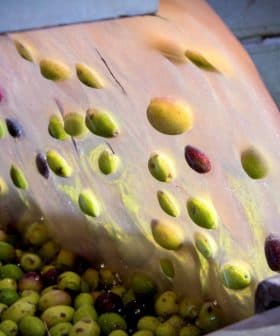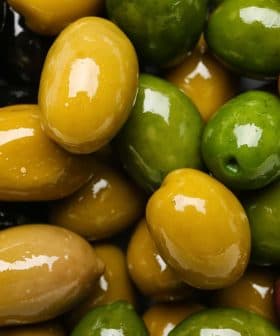High-Polyphenol Extra Virgin Olive Oil May Lower Risk of Vascular Diseases Associated with Diabetes

A study from Yale University found that high-polyphenol extra virgin olive oil improved endothelial function in adults at risk of type 2 diabetes, while refined olive oil did not, with endothelial function being an independent predictor for cardiovascular disease. The study, funded by Cobram Estate, involved 20 participants consuming either extra virgin or refined olive oil blended into smoothies, showing that the polyphenolic contents in extra virgin olive oil may provide anti-inflammatory and anti-oxidation properties that improve endothelial function.
A new study from the Yale-Griffin Prevention Center at Yale University found that high-polyphenol extra virgin olive oil consumption improved endothelial function in adults at risk of contracting type 2 diabetes, while refined olive oil did not.
Endothelial function is a measure of how well blood vessels expand when blood flows through them and is an independent predictor for cardiovascular disease.
Our study demonstrated that a single dose of… high-polyphenolic extra virgin olive oil, when compared with refined olive oil… was associated with endothelial function improvement among individuals at risk for type 2 diabetes.
The researchers decided to conduct the study after finding mixed results from previous studies about the impacts of olive oil consumption on cardiovascular health and sought to differentiate the effects of different types of olive oil.
“While research over the past few years has shown that olive oil can offer considerable benefits to heart health, results of those studies have not always been consistent,” said Valentine Njike, the assistant director of research and evaluation at the Yale-Griffin Prevention Center and lead author of the study.
See Also:Health News“This may be due to the fact that the nutritional content of olive oil varies,” he added. “For example, all olive oils are relatively high in monounsaturated fat, which is thought to be ‘heart-healthy,’ but extra virgin olive oil contains higher levels of biophenols, natural compounds that modulate oxidative stress, and are thought to slow the progression of cardiovascular disease.”
For the study, which received funding from Cobram Estate, researchers selected 20 obese, mostly-Caucasian participants at risk of contracting type 2 diabetes. Half of the participants were men and the other half were women. All participants had high blood pressure and the average age was 56.
At the beginning of the study, each participant had their endothelial function measured before consuming 50 milliliters of either the extra virgin olive oil or refined olive oil, which was blended into a yogurt-based smoothie. The participants then had the endothelial function measured again.
After a one-week washout period, the participants returned and repeated the process with the other type of olive oil. Neither the researchers nor participants knew which type of oil they were giving or receiving.
“Our study demonstrated that a single dose of 50 milliliters of high-polyphenolic extra virgin olive oil, when compared with refined olive oil without polyphenols, was associated with endothelial function improvement among individuals at risk for type 2 diabetes mellitus,” the researchers wrote.
“The acute effects of extra virgin olive oil on endothelial function observed may be explained by differences in the composition of extra virgin olive oil and refined olive oils,” they added.
The researchers attributed the improved endothelial function to several different polyphenolic contents present in the extra virgin olive oil, including naturally-occurring minerals and vitamins. These provide anti-inflammatory and anti-oxidation properties to the oil and are not found in refined olive oils.
While researchers said that the scope of the study was small and more work with larger and more diverse cohorts was needed to confirm their findings, the results demonstrate that the type of olive oil used in future studies should be precisely documented.
“There is tremendous interest in, and lively debate about, the health effects of oils, including olive oil. Such debates should be resolved with data, and this study makes an important contribution by highlighting the relevance of not just the type of oil, but also its quality,” said David Katz, founding director of the Yale-Griffin Prevention Center and co-author of the study.
“We have added to an impressive weight of evidence indicating diverse health benefits from genuine extra virgin olive oil,” he added.









